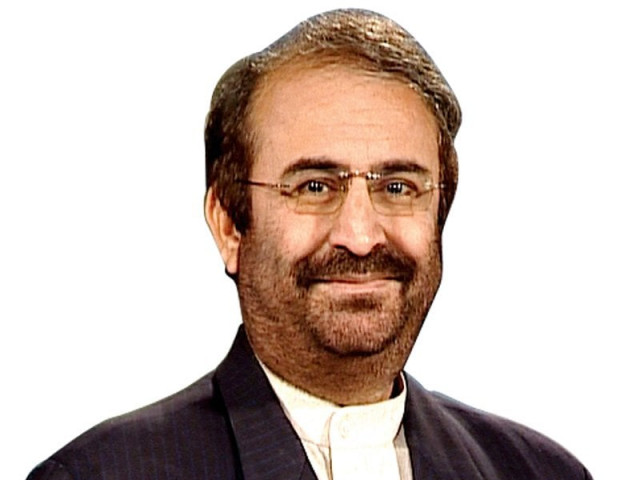Afghans hope informal talks lead to peace
Terming the govt illegitimate, Taliban say formal peace process with not possible.

Terming the govt illegitimate, Taliban say formal peace process with not possible
Recently, top Taliban negotiators held face-to-face interactions in Qatar, Norway and the United Arab Emirates with prominent officials, including members of parliament (MP), representatives of the government-backed High Peace Council and Abdul Qayyum Karzai, uncle of President Ashraf Ghani.
Similar meetings are planned in the coming weeks. The United Nations Assistance Mission in Afghanistan (UNAMA), along with Canadian-based organisation Pugwash, is playing an important role in the dialogue process.
UNAMA had also planned a meeting between the Taliban and Afghan leaders in China, however, sources in the UN say the meeting has been delayed.
Taliban for ‘informal talks’ only
Several Taliban leaders have confided to The Express Tribune they are in favour of informal sittings with Afghans in their personal capacity to “listen to their views, share our policies with them and to remove concerns”.
Taliban leaders say they do not want the mediation of any country at the moment and are open to the idea of meeting Afghan political leaders, MPs, members of civil society and women activists. They also said several countries have offered mediation in talks with the government but “we do not have any plan to open talks with the Kabul administration,” said one of them.
“The real issue is the continuation of the invasion and that the Kabul administration has no capability or willingness to encourage the Americans to accept the Taliban demands. So talks with such a weak administration will be just a waste of time,” Taliban spokesperson Zabihullah Mujahid told The Express Tribune via email.
Women’s concerns
The June 3-4 meeting in Oslo mainly focused on Taliban’s policies towards women. A 10-member women delegation including two members of the parliament and as many of the peace council held face-to-face talks in Norway.
Shukria Barakzai, an Afghan MP who was part of the team, described the talks as an “historic and important move” for Afghan women. “The main demand was that all democratic values achieved over the past 10 years should be protected,” Barakzai had told the BBC on her return to Kabul this week.
The Norway talks focused on how women’s rights should be respected in any possible power-sharing deal, she said. Barakzai did not offer any comment on the Taliban response to the specific demands about women rights but said women representatives and the Taliban agreed ongoing “war is not in favour of anyone and talks should continue for durable peace.”
The Afghan High Peace Council is upbeat at the growing interaction with the Taliban and insists the chance should not be missed.
“These meetings are not formal, but will pave the way for the beginning of official peace talks,” council spokesman Maulvi Shahzada Shahid, who attended last month’s talks in Qatar, told ToloTV.
The Afghan Independent Human Rights Commission has also joined those who support negotiations with the Taliban and said the emphasis must be on achievements made on women’s rights and human rights during peace talks.
Ghani has also appointed senior militant leader Qutbuddin Hilal as his adviser on the peace process. Afghan state television said Hilal is among four newly-appointed presidential advisers.
Analysts believe the move could help the peace process as Hilal, a former head of the political council of Hizb-e-Islami led by Gulbuddin Hekmatyar, has contacts with the Taliban.
Not on the same page
Though a vast majority backs the peace process, certain elements are uneasy.
The Afghan national assembly’s head Abdul Rauf Ibrahimi believes unofficial talks are against the country’s interests.
“Talks in which we do not know with which group or groups the government is holding talks with are not in the interest of the country,” Afghan media quoted Ibrahimi saying this week.
Afghans are passing through a critical juncture and it is imperative no country tries to jump into the dialogue process. Afghans need to decide the future of their country and any unnecessary interference at this stage could derail the process.
Taliban and the Afghan government could take some confidence-building measures to pave the way for official talks – a major one could be a break in fighting during Ramazan.
Published in The Express Tribune, June 13th, 2015.












COMMENTS
Comments are moderated and generally will be posted if they are on-topic and not abusive.
For more information, please see our Comments FAQ